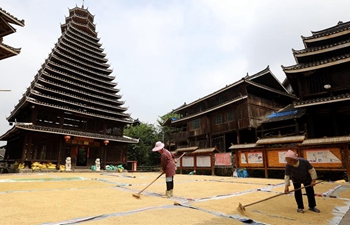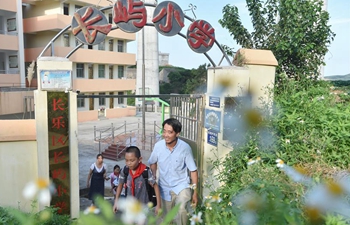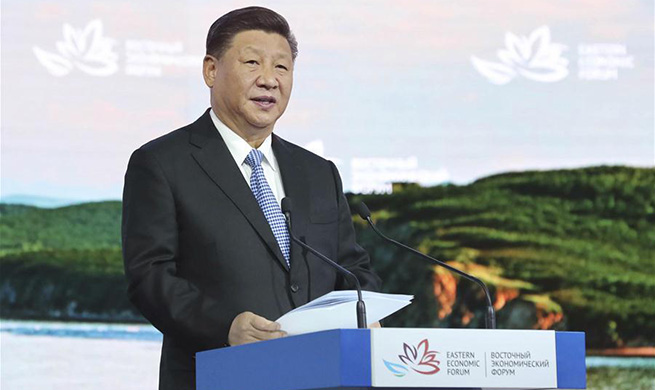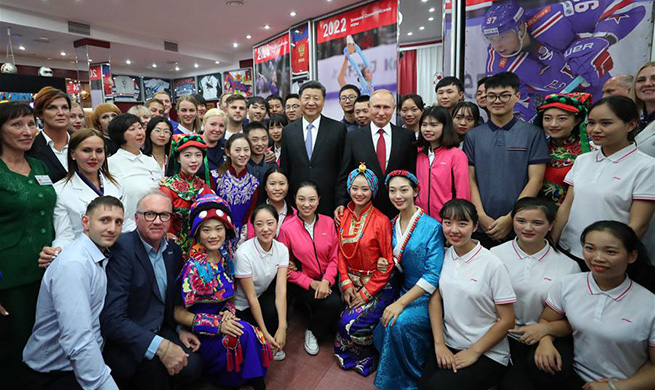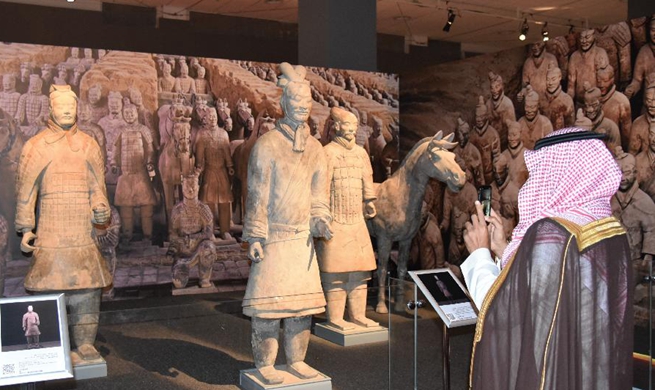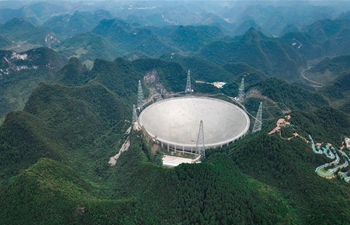BEIJING, Sept. 13 (Xinhua) -- An ambulance rushes through the streets of Hangzhou, east China's Zhejiang Province.
It reaches the scene of an emergency without meeting any obstacles for almost 7 km and no red lights.
"It has been given priority passage 21 times, taking half the time it would have taken previously," said Police officer Sun Shixiang.
The ambulance was assisted by "City Brain," an artificial intelligence (AI) platform that improves city management. It works on the city's 128 crossroads.
The traffic lights were adjusted every 15 minutes according to the road cameras that monitor vehicle numbers and traffic movements and analyzed transport and weather data. The journey time was cut by 15 percent.
The AI technology of City Brain is being promoted in five other Chinese cities, and in Singapore and Malaysia. The trials show it can almost halve ambulances and fire engine journey times.
City Brain will be able to process power and water supply data in order to save resources and improve efficiency, according to Alibaba, the e-commerce giant.
Chinese businesses are providing intelligence and smart services abroad. An executive of Huawei, the tech giant, said that the company now provides smart city services in almost 40 countries.
In June 2017, China was home to about a quarter of the world's 2,542 AI companies and had registered about 15,700 AI patent applications, according to the China Internet Network Information Center.
The Smart City Expo China 2018 was held from Sept. 7 to 9 in Ningbo, Zhejiang Province. On first day alone, the total investment reached 26 billion yuan (about 3.78 billion U.S. dollars) in the fields of intelligent manufacturing, the industrial internet, robots, integrated circuits, and smart cities.
China and the European Union (EU) agreed a consensus at the Expo to conduct human-oriented cooperation on constructing green and smart cities.
The two sides hope to discuss garbage classification and recycling and cutting carbon dioxide emissions, said Chris Wood, deputy head of the Delegation of the EU to China.
China started piloting national smart city development in 2012 to encourage use of new technologies, such as AI and Internet-of-Things (IoT), to help traffic flows, improve law enforcement and make public buildings more energy efficient.
In 2013, the Ministry of Housing and Urban-Rural Development began 90 smart city pilots.
An annual report on China's IoT development from 2016 to 2017 said there had been over 500 cities around China planning or building smart cities.
China aims to build 100 new smart cities from 2016 to 2020 to lead the country's urban planning and development.
Li Tie, an official with the National Development and Reform Commission (NDRC), said the concept should include the internet, the IoT, information technology, AI and big data, as well as their applications in city management.
The intelligence of transport, security administration, emergency services and infrastructure monitoring would help cities be smart, said Li.
Chinese businesses provide smart products for families, communities and industrial parks. "Taking family as an example," said Li, "if the electricity and room temperature can be adjusted automatically according to the occupants' habits, the household is becoming smart."
Feng Kui, also an official with the NDRC, said smart city construction should balance technology application and local characteristics. "A smart city is not only a project, but should be human-oriented," Feng explained.
In July last year, the State Council issued a plan for a new generation of AI, pledging to make the industry a major new growth engine to raise living standards by 2020 and make it the global center and leader of AI innovation by 2030.
China's AI industry output last year was 18 billion yuan and the value of related industries was 220 billion yuan, according to the Ministry of Industry and Information Technology.
Wang Jian, director of Alibaba technical committee, said data are the new resources for city development while computing power is the new motivation. He predicted AI would be important infrastructure helping cities to keep developing.




